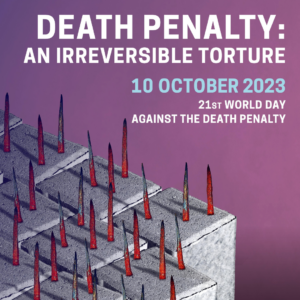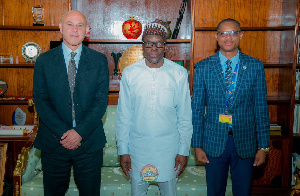
PRESS RELEASE: Whilst out of step with international law, Privy Council rules that Jamaica’s sentencing of children is lawful
- News
- 11 May 2023
Today, The Judicial Committee of the Privy Council handed down judgment in an appeal from Jamaica considering the practice of sentencing juveniles to mandatory minimum terms of imprisonment. The appeal, Morrison v The King [2023] UKPC 14 was heard in the Privy Council, where the legal team argued that mandatory minimum sentences for children are unconstitutional as they are contrary to rights found in international law.
Dismissing this argument , the Privy Council stated that it was reluctant to incorporate standards found in international law, such as those in the United Nations Convention on the Rights of the Child (UNCRC), directly into Jamaican law where the Jamaican legislature had decided not to expressly incorporate international law for the protection for children, into domestic legislation.
This judgment leaves Jamaica out of step with the international community and fails to account for recognised international standards when children pass through the criminal justice system. In particular, mandatory minimum sentences do not allow the individual circumstances of children to be considered by the courts, before sentencing them to lengthy terms of imprisonment. The UNCRC requires the detention of children to be “…used only as a measure of last resort and for the shortest appropriate period of time.”
International law generally recognises that children should be given special status in the criminal justice process. Not only should detention be used as a last resort, but minors should be separated from adults and given appropriate protections which are sensitive to their needs as children. Mandatory sentencing treats all individuals alike, regardless of any particular mitigating factors.
Background to the Appeal
In 2013, Mr Tafari Morrison was convicted of illegal possession of a firearm, aggravated robbery, and wounding with intent. He had entered a guilty plea in relation to an incident in which a victim’s phone was taken at gunpoint and shots had been fired in his direction as he fled.
Mr Morrison was 16 at the time of the offence. By the time of sentencing Morrison was 17 years old, a minor, and despite several mitigating factors, such as his age and vulnerabilities, he was sentenced to the 15-year minimum sentence for the crime of wounding with intent whilst using a firearm, mandated by Jamaican law.
Morrison had no previous convictions and lived with his disabled mother who is blind and could not walk. He acted as her primary caregiver. He did not have a father figure and lived in a community considered vulnerable. He was also claimed to have been groomed into a life of crime by an older family member. The Court of Appeal was not able to take these factors into account when sentencing Morrison as Jamaican law bound them to impose a 15 year sentence. By the end of the term of the sentence, Morrison would have spent half of his life in prison. Morrison appealed his mandatory sentence at the Jamaican Court of Appeal, which was dismissed in 2020.
In January 2023, working with the Death Penalty Project and London-based barristers, Mr Morrison’s appeal against sentence was heard by the Privy Council. The legal team argued that mandatory sentences for juveniles is contrary to international legal obligations under the UNCRC and that mandatory sentences of 15 years for children are not only unfair but also unlawful. International standards state that when sentencing a child, the best interests of the child and the particular circumstances of individual cases should affect the length of time in custody.
Decision of the Board
The Privy Council took the view that the wording of Jamaican legislation was not intended to import rights found in international law relating to sentencing policy. The Board did not consider that the sentence which Mr Morrison received was grossly disproportionate, on the facts of his case and despite the mitigating factors.
The Board went on to consider whether the mandatory 15 year sentence, for robbery with use of a firearm, was constitutional. The Board accepted that there may be cases where the minimum sentence would constitute inhuman or degrading punishment or treatment. However, they held that the legal provision could not be said to be unconstitutional unless it would rate incompatibly with the Charter of Rights “in all or almost all cases”. The Board refused to strike down the mandatory 15 year sentence on this basis.
Jamaica ratified the UNCRC in 1991 but is not obliged to import requirements of international law into domestic law. The Jamaican constitution does not require a clear segregation of children from adults.
Commenting on the judgment Saul Lehrfreund, Co-Executive Director of The Death Penalty Project said:
This is an extremely disappointing judgment by the Privy Council. It imposes a restrictive view of how the courts should treat international legal norms. This leaves the sentencing practice in Jamaica, for children accused of serious crime, juxtaposed with international standards intended to protect the rights of the child and promote the rehabilitation of offenders. In all cases, defendants should have the opportunity to address the court on the appropriate length of their sentence.
Notes to Editors
The Legal Team
The appellant was represented by Hugh Southey KC of Matrix Chambers (UK) and Philip Dayle of No5 Chambers (UK), instructed by The Death Penalty Project (UK) and Ricardo Sandcroft (Jamaica).
Death Penalty Project
The Death Penalty Project (DPP) is a legal action NGO, based at Simons Muirhead Burton LLP, with special consultative status before the United Nations Economic and Social Council. For more than three decades, the DPP has worked to protect the rights of those facing the death penalty.
For interview requests, quotes or more information please contact Isobelle Degale, The Death Penalty Project, Communications Officer, [email protected]




















